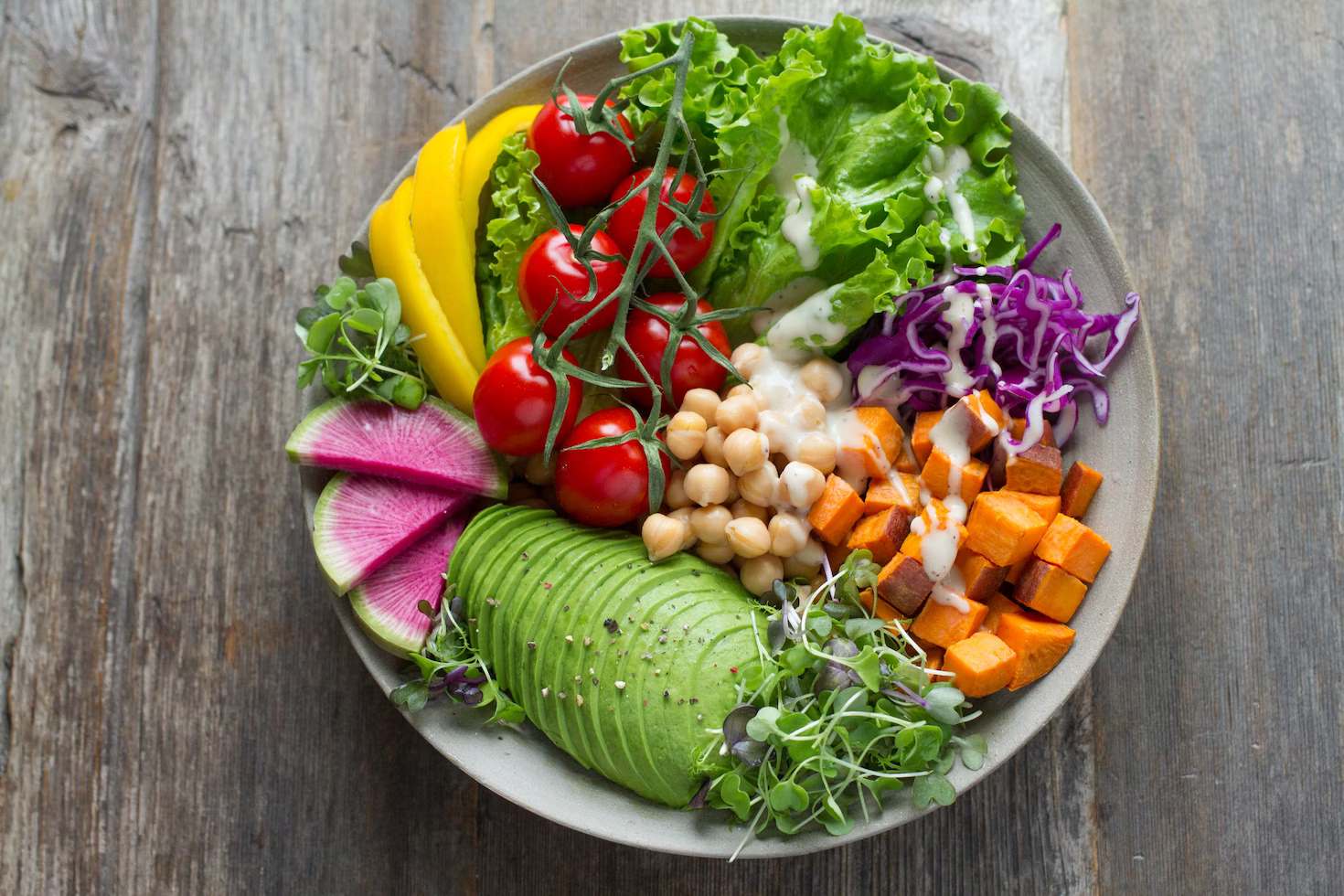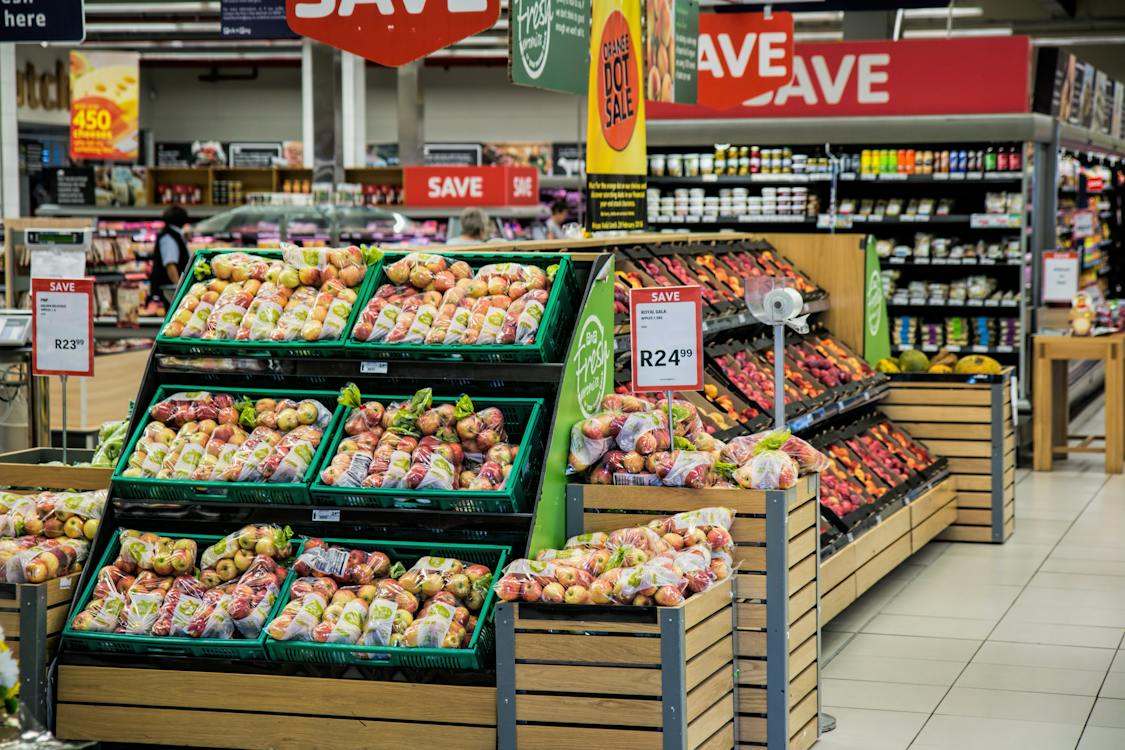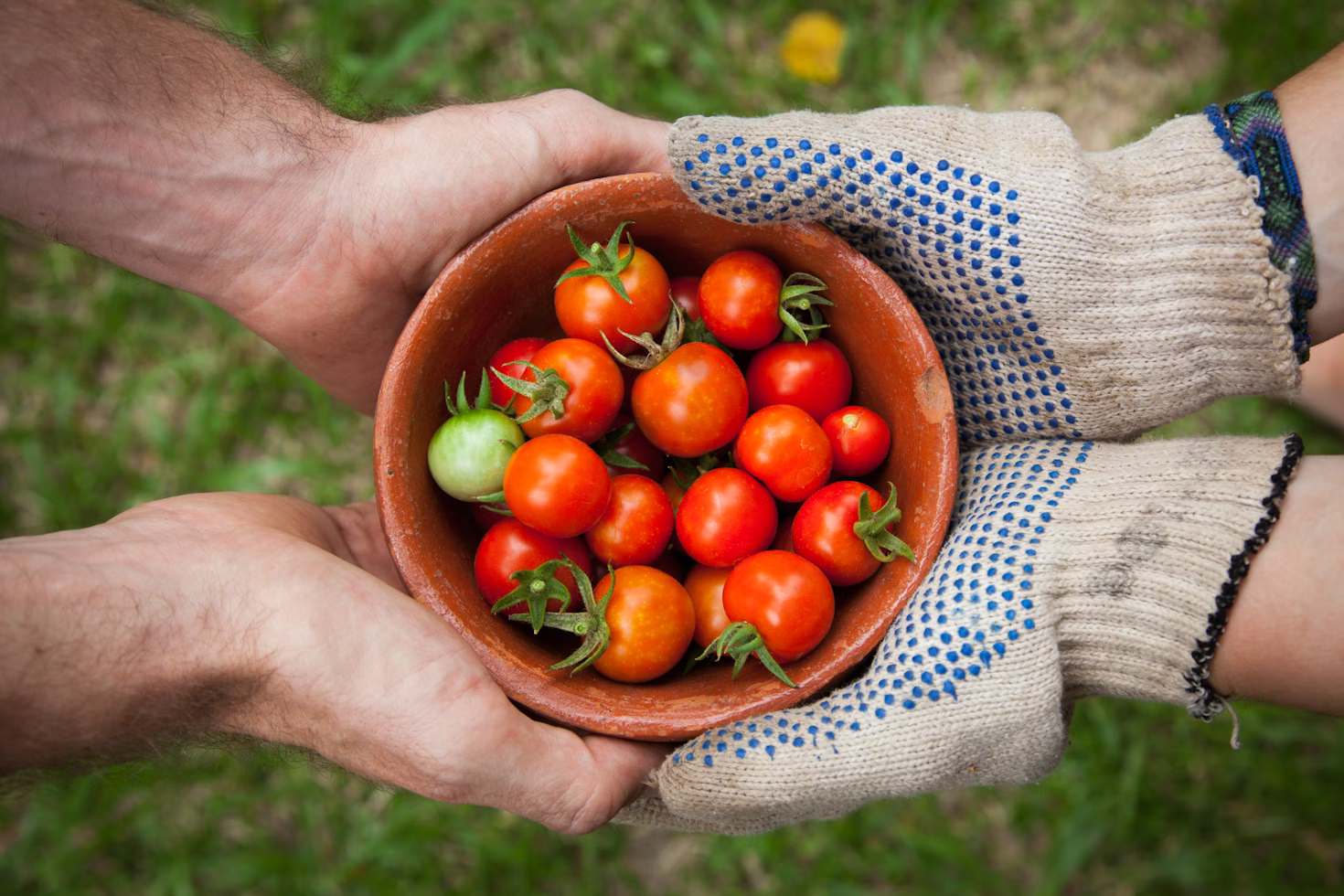In today’s rapidly changing world, the way we nourish our bodies is evolving. Sustainable eating isn’t just a diet; it is a lifestyle that acknowledges the profound impact our food choices have on the environment and the global community. It’s more than just what is on our plates – it is a holistic approach that considers the future of our planet and the well-being of generations to come.
Intriguing and imperative, sustainable eating takes us beyond the basics of food. It urges us to reflect on the broader consequences of our dietary decisions. As we delve into this transformative approach, we will explore the principles and practices that define sustainable eating. So, let’s embark on a journey into the world of sustainable eating and discover how our daily food choices can help shape a brighter and more harmonious future.
What Defines A Sustainable Diet?
For a diet to qualify as sustainable, it must involve food production practices that safeguard the environment while causing minimal disruption to biodiversity, ecosystems, and natural resources. Additionally, a sustainable diet should meet the criteria of being nutritionally adequate, healthy, culturally acceptable, economically affordable, and safe. (1)
Moreover, it is worth noting that the emissions resulting from food production have a more detrimental impact on the environment than transportation emissions. (2) To assess the sustainability of a food system, researchers examine factors like water consumption, land use, and greenhouse gas emissions. Greenhouse gas emissions contribute to global warming by trapping heat in the atmosphere and damaging the ozone layer (2). Besides the environmental concerns, our current food systems also generate a plethora of unhealthy food choices that can adversely affect our physical health, reducing life expectancy and increasing the risk of chronic diseases.
Is Veganism Environmentally Sustainable?
Following a vegan diet may present a few potential challenges. Environmental concerns arise when the vegan diet relies heavily on ultra-processed foods or long-distance transportation of produce, increasing energy consumption. (2) Furthermore, certain plant-based foods can have higher water usage for production compared to some animal products, making the sustainability of a vegan diet dependent on individual choices (1).
Maintaining a nutritionally balanced vegan diet can be challenging without guidance from a registered dietitian. Without careful planning, deficiencies in nutrients like vitamin B12, calcium, and iron, which are abundant in animal sources, may occur. (2) Additionally, the increased consumption of processed, sugar-laden substitutes traditionally derived from animal products can elevate sugar intake. For individuals with soy or wheat allergies, achieving balanced nutrition can be problematic, as these are crucial sources of plant-based protein.
Considering these factors, adopting a plant-centric diet that includes both meat and plant-based products while emphasizing plant consumption may be a more sustainable and practical approach that still promotes both environmental and physical health. Now, let’s explore ten valuable tips for adopting sustainable eating habits that benefit your well-being and the health of our planet.
Ten Tips For Sustainable And Healthy Eating
Limit Your Intake of Highly Processed Foods
Cutting down on the consumption of ultra-processed foods is not only beneficial for your health but also has a positive impact on the environment. These foods are laden with excessive amounts of fat, sugar, and various additives, contributing to various health issues. Examples of ultra-processed foods encompass sugar-sweetened beverages, pre-made desserts, chips, and processed meats. Their production, transportation, and consumption are linked to greenhouse gas emissions. An in-depth examination reveals that the detrimental effects extend beyond health concerns. The extensive industrial processes involved in producing these foods result in higher energy consumption and emissions. Transporting them over long distances adds to their environmental footprint. Therefore, by reducing our reliance on ultra-processed foods, we safeguard our health and play a role in reducing the environmental burden imposed by their production and distribution. This dual benefit underscores the importance of making more conscious food choices that consider both personal well-being and the health of our planet.
Cultivate A Garden
Whether it’s a pot of herbs on your windowsill, a collection of tomatoes on your patio, or a small plot in your yard, the act of growing your own food provides a profound opportunity to connect with the essence of food production. It gives you firsthand experience of the intricate factors that contribute to plant growth, from soil quality to proper watering and sunlight exposure. This hands-on approach not only imparts a deeper appreciation for the food we consume but also instills a sense of the care and effort required to nurture it. Moreover, gardening, in its essence, reveals the fragility and complexity of the food cultivation process. As you tend to your plants, you’ll gain a firsthand understanding of the delicate balance required for successful food production. This newfound awareness often has a transformative effect on the way you approach food. It may influence your choices when purchasing, preparing, and discarding food. Connecting with the growth process makes you more likely to make conscious decisions that minimize waste and support sustainable food practices, benefiting your personal food journey and the environment.
Reduce Meat Consumption
The guidance to minimize meat intake isn’t solely rooted in health considerations; it’s closely tied to environmental responsibility as well. Meat production, particularly beef, exerts a significant toll on the environment by contributing to greenhouse gas emissions. (3) This, in turn, exacerbates the environmental strain as the process of raising and transporting livestock necessitates more resources such as food, water, land, and energy compared to plant-based alternatives. For the well-being of both ourselves and the planet, a shift towards non-meat protein sources like nuts and legumes is advisable. Not only do these alternatives offer nutritional benefits, but they also place a lighter ecological footprint, making them a more sustainable choice. Embracing this transition in your dietary choices is a proactive step towards promoting both personal health and the health of the Earth.
Support Local Agriculture
Opting for locally-grown food is not only a gesture of support for your community but also a step towards reducing energy consumption, minimizing greenhouse gas emissions, and conserving resources. When you choose locally-produced goods, you contribute to a more sustainable food system by reducing the energy and emissions associated with long-distance transportation. However, it is essential to be mindful of your own travel emissions. The overall environmental benefits might be diminished if you drive a long distance to access local products. To make the most sustainable choice, it’s advisable to shop close to home whenever possible. This way, you not only support local farmers and reduce the environmental impact but also save on personal transportation emissions, further contributing to a greener, more eco-conscious lifestyle.
Opt For Bulk Purchases
Embracing bulk shopping at your local grocery store and using washable, reusable bags can have a profound impact on reducing waste and conserving resources. When you choose items from the bulk section, you’re effectively reducing excessive packaging waste that plagues our environment. This lessens the burden on landfills and minimizes the energy and resources required for manufacturing and disposing of packaging materials. Moreover, buying in bulk allows you to purchase only the quantity you need, curbing food waste and saving money. Reusable bags are equally crucial in the sustainability equation by significantly reducing single-use plastic waste. They not only conserve energy and resources but also offer durability, ensuring a longer lifespan than disposable plastic bags. Together, these small yet conscientious choices encourage a more environmentally responsible approach to grocery shopping, benefitting both your wallet and the planet.
Minimize Food Wastage
Minimizing food waste is crucial to a more sustainable and environmentally conscious lifestyle. Shockingly, approximately one-third of the world’s food production goes to waste, resulting in a squandering of energy, land, water, and other valuable resources. Even more disheartening, this wasted food often finds its way to landfills, contributing to land, water, and air pollution. (3) It is a stark reminder of the importance of tackling this issue. Fortunately, you can adopt several practical strategies at home to reduce food waste.
- Start by planning your weekly meals and crafting a corresponding grocery list, ensuring you purchase only what you consume. Keeping track of meal preparation dates can help you prioritize items in your fridge. Utilizing other resources can provide insights into the shelf life of various food items.
- Freezing leftovers is another smart tactic to prevent spoilage and facilitate quick meals on busy days. Moreover, making the most of every part of vegetables, such as using trimmings for homemade stock, is a sustainable approach.
- Lastly, you can repurpose leftovers with sauces, vinegars, or spices to create fresh, flavorful dishes. From stir-fries to soups, there are countless ways to use leftover vegetables. Even stale bread can be transformed into delectable French toast, croutons, or breadcrumbs.
Become a member of a CSA
Participating in a Community Supported Agriculture (CSA) program is a sustainable and community-centered approach to sourcing fresh, locally grown, and raised products. Before the era of food subscription boxes, CSAs were championing the connection between consumers and local farmers. When you join a CSA, you essentially purchase “shares” of the farm’s harvest, which can include a wide array of products like fresh produce, dairy, eggs, and various meats. The beauty of CSAs lies in their capacity to support local farmers and strengthen the bond between consumers and their food sources. By subscribing to a CSA, you directly contribute to your community’s agricultural sustainability. In return, you receive a bountiful selection of seasonally fresh, high-quality products.
Exercise Discernment in Seafood Choices
In our pursuit of responsible seafood consumption, it is crucial to make informed choices that support our health and our oceans’ well-being. Existing fishery regulations are designed to establish sustainability standards that safeguard marine ecosystems, combat overfishing, minimize bycatch, and preserve natural habitats. (2) Aquaculture, or fish farming, serves as a viable solution to meet the growing demand for seafood without depleting our oceans. However, seafood’s sustainability and health aspects can be challenging to navigate. Thankfully, tools like the Environmental Defense Fund Seafood Selector come to our rescue. (3) This resource provides valuable insights into various seafood options, offering eco-ratings, mercury levels, and omega-3 content. By consulting this information, you can make informed choices that not only prioritize your own well-being but also contribute to the conservation of our ocean ecosystems. This discerning approach ensures that the seafood you select aligns with both your health goals and environmental responsibility, supporting a more sustainable and eco-conscious future.
Embrace Composting
It’s an everyday reality that we can’t always consume every edible part of our food, leading to food waste. Composting is the simple yet effective solution to this challenge. It serves a dual purpose by diverting food waste away from landfills while enriching your kitchen environment. Composting completes a sustainable life cycle by transforming organic waste into nutrient-rich fertilizer. This valuable compost can enhance soil quality and contribute to the growth of healthier, more nutritious foods. Consider investing in a compact, odor-blocking composting bucket for your kitchen to incorporate composting into your daily routine seamlessly. This small change can have a significant impact, reducing food waste, supporting the environment, and nurturing future crops, all while promoting a greener and more sustainable way of living.
Engage in Mindful Eating
Incorporating sustainable practices into your dietary habits can be as simple as embracing mindful eating. Mindful eating is not just about savoring each bite but also about recognizing the broader impact of your food choices. When you truly focus on what you’re consuming, you take a moment to reflect on the origins of your food and how it nourishes your body. Additionally, mindful eating encourages you to be more in tune with your body’s hunger signals. Often, we realize that we don’t require as much food as we might have thought, allowing us to adjust our portion sizes to align with our genuine needs. This not only supports personal health but also contributes to the reduction of food waste. Moreover, adopting mindful eating can inspire you to explore more sustainable food sources. By considering the “bigger picture” of your dietary choices, you become increasingly aware of your food consumption’s environmental and ethical implications.
Conclusion
Sustainable eating transcends mere dietary choices like plant-based or veganism; it encompasses a holistic approach to food consumption. It involves conscious shopping and supporting local agricultural processes, while considering every facet of your food choices before they reach your plate. Sustainable eating also encourages growing your own produce, mastering the art of reducing food waste, and much more. Ultimately, it’s about savoring your meals while actively promoting environmentally responsible practices, ensuring a harmonious coexistence with our planet and future generations.






